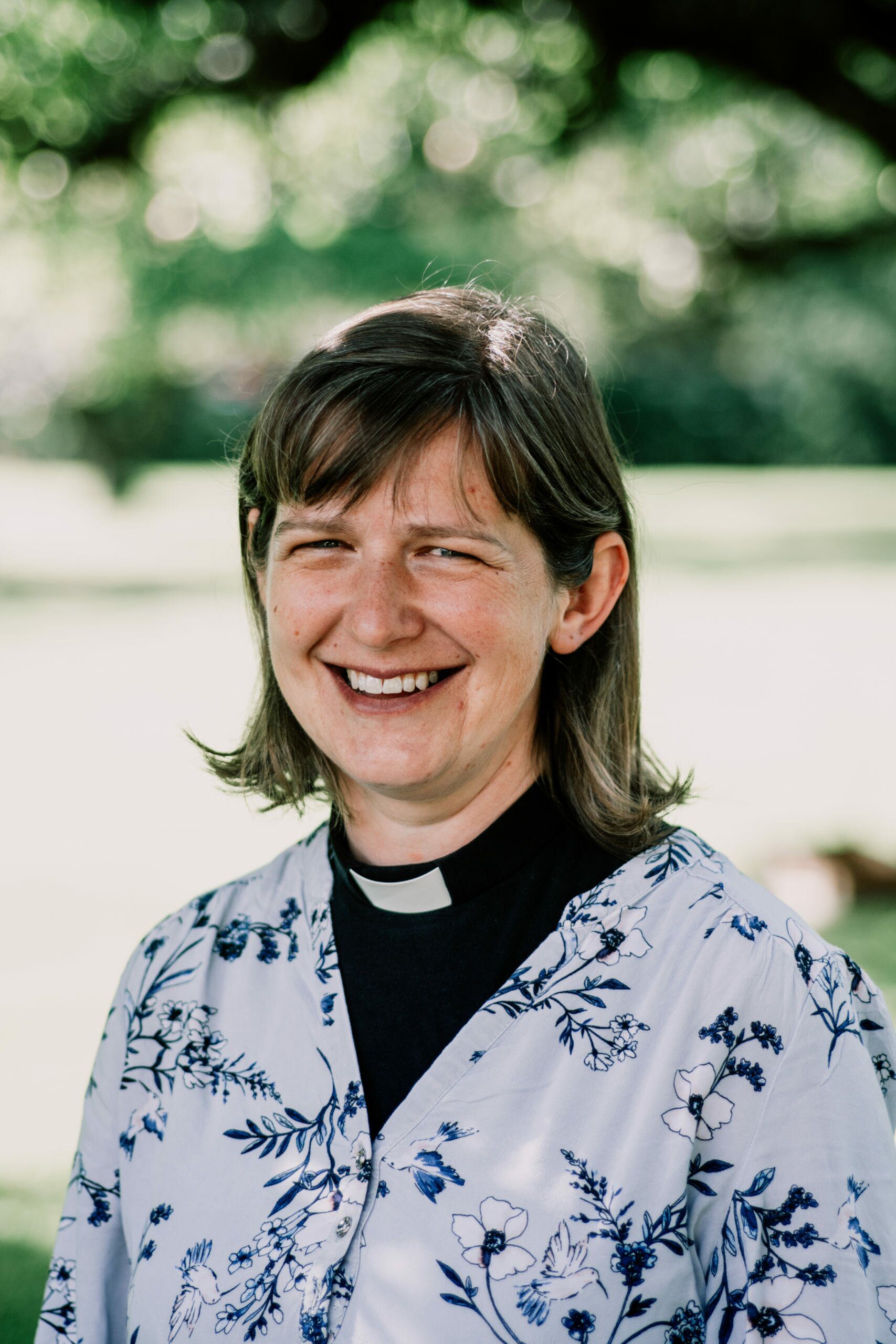
The Revd Jenny Corcoran joined us in October 2021 as Tutor for Lay Education, Practical Theology, and Old Testament.
Jenny was previously Chaplain to the Bishop of Dover in the Diocese of Canterbury and Local Chaplain to the Archbishop of Canterbury for around four years, and we asked her to tell us about her background and teaching interests.
“I grew up in Bristol, and did a BA degree in Music and English Literature at the University of Lancaster. Before studying for ordination at St John’s, Nottingham and gaining a Masters in Mission and Ministry there, I worked for a while as a youth and children’s minister at a large evangelical church near London.
During my time at St John’s, I met Dan, now my husband, and we ended up doing our curacies in Southwell and Nottingham diocese at the same time.
We were very lucky with this, as the diocese was kind to us and placed us quite close together. As I was studying for three years Dan began his curacy a year before me. With both of us being ordinands, though, one I thing I did have to do was make it clear I was not going to be a typical curate’s wife! I would be studying full-time for a year and then starting my own curacy, so wouldn’t be getting involved in everything, and attending all the meetings, coffee-mornings and so on. They still managed to rope me in to various things though, which was lovely as it gave me the opportunity to get to know people on his patch during my last year.
While I was doing my own curacy I started doing bits and pieces of teaching. As well as teaching on the diocesan Lay Certificate, I was involved in co-leading the CPAS Growing Leaders in my parish, which, after the first course, we also opened out to other local parishes. It was wonderful to see people engage, grow and develop; doing things they never would have imagined, and I got bitten by the teaching bug, really.
About halfway through my curacy, I started having conversations about doing a PhD. I had had this interesting thought – and much to my surprise, other people found it interesting too, and I found myself enrolled on a PhD programme at St Johns.
When I finished my curacy, I took over a small parish at the same time as starting the PhD. After a few years, I moved from the parish to take on a part-time teaching job at St Johns, which was intended to provide cover for 6 months and I thought would be great experience. I stayed for five years.
I was responsible for the Chapel and all the college worship, as well as teaching leading worship and preaching, being responsible for the spirituality course and overseeing the contextual theology programme. It was a lot, but all in connected areas; and I loved it.
By the end of five years, my husband had been in his mission post for six or seven years, and we started looking around. This job came up in Canterbury, and I applied, unsure whether it was a crazy move or not. At interview, I decided it was definitely a job I needed to do, and was delighted to be appointed as Chaplain to the Bishop of Dover in the Diocese of Canterbury and Local Chaplain to the Archbishop of Canterbury.
When we moved down to Kent, we had two small children, and they were lucky enough to get a bit more Dad time for a couple of years, while I got stuck in to my new job. In just over four years there, I had the privilege of working with Bishop Trevor and then with Bishop Rose and being on the senior staff of the diocese, with access to so many different aspects of it works. It was also a privilege to be able to see how the work of the diocese plays out in the parishes, and to help where I could.
Whilst at Canterbury, I also completed my PhD ‘A reading of Deuteronomy as a model of continuity, adaptation and innovation for contemporary discussions of Anglican liturgy’. The idea came partly from a three-month placement during my curacy, where my husband and I worked together around the country exploring fresh expressions in the Anglican Church. We were able to talk to lots of different people – from congregants to practitioners and bishops. It struck me that, by nature, thinking around fresh expressions tends to be very pragmatic. People are looking for ways to connect with people, so the ideas tend to be very practical. I saw a gaping hole where biblical studies needed to be in all that, particularly thinking about the Old Testament, which is often neglected or misunderstood. I felt strongly that we needed to engage more with what the Old Testament has to say about God and his people, and that there is much in it to explore in terms of how we live our lives as followers of God now. So my PhD became half practical theology and half Old Testament.
Now, as tutor at St Augustine’s, I hope to bring that experience to my teaching, along with my previous teaching experience.
Although I loved my previous job, I did miss having contact with students, and wanted to teach somewhere where my experience could make a real difference, where teaching for ministry would have an applied edge to it. For me, the most exciting thing is showing students how things look in different contexts, and seeing how they respond to the question ‘how am I going to think differently about mission and ministry in light of what I’ve learned?’
St Augustine’s seems like a really exciting place at the moment. I found the way they engaged with lockdown really interesting and positive, with a real engagement with the possibilities of virtual learning. I see a college that looks for opportunities and ways to engage with what training needs to be for people in the future.”

